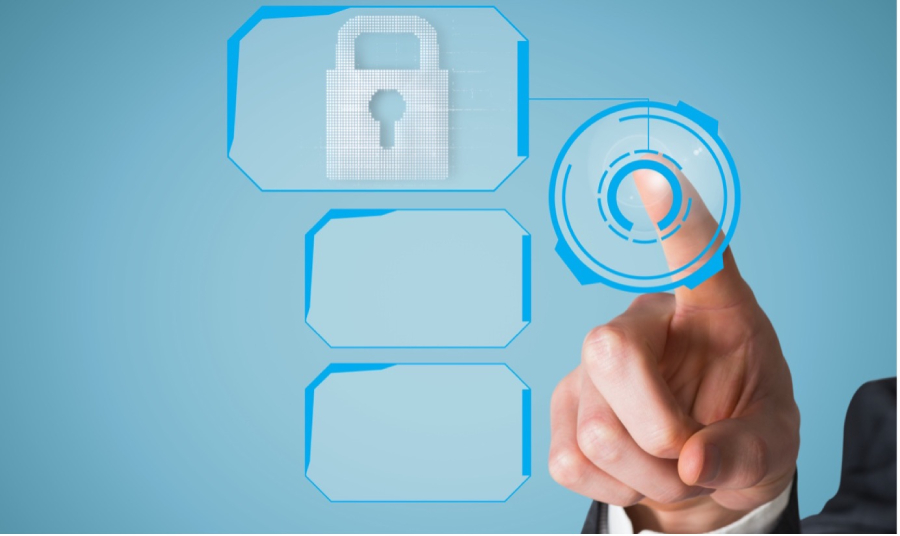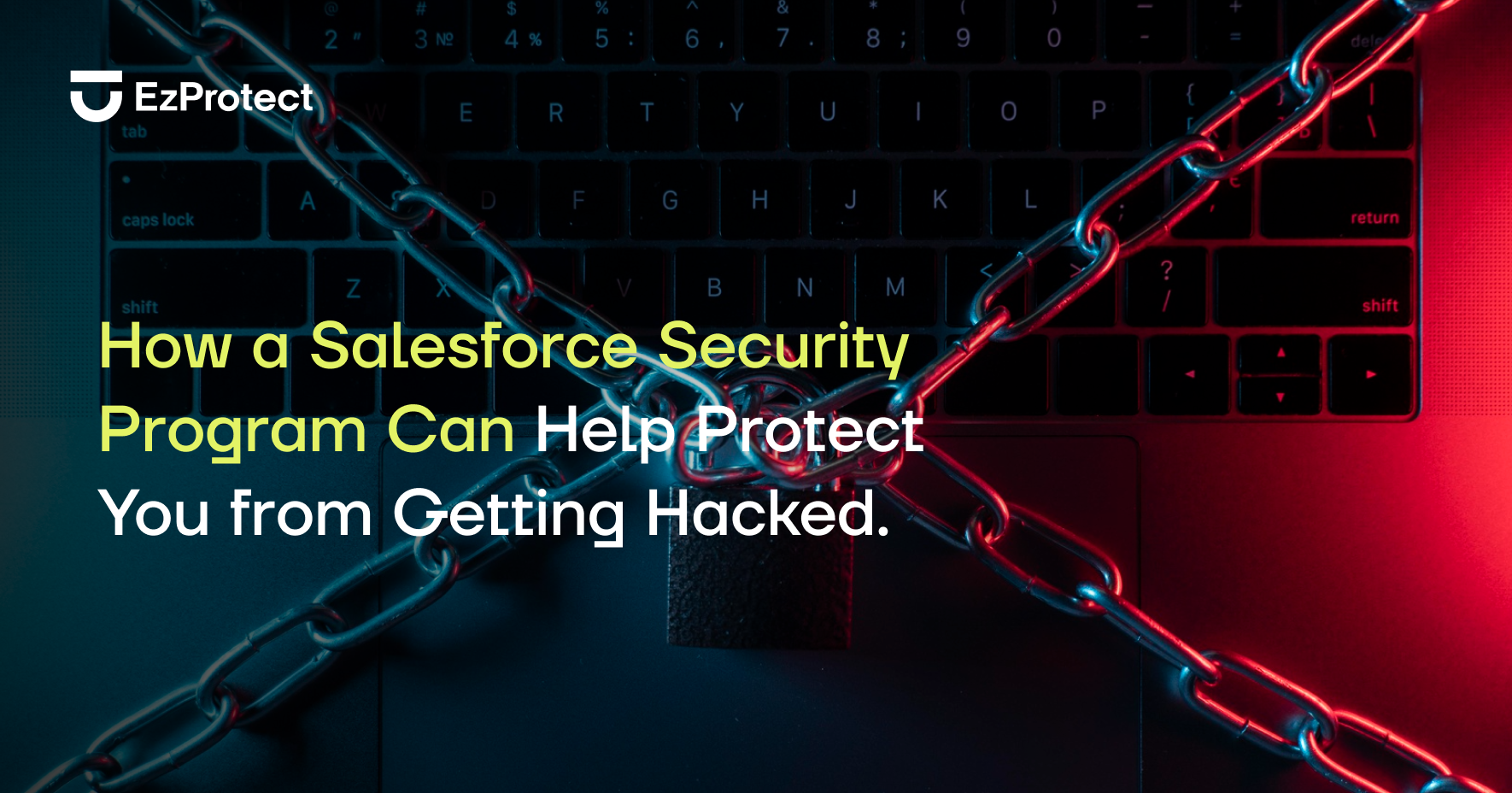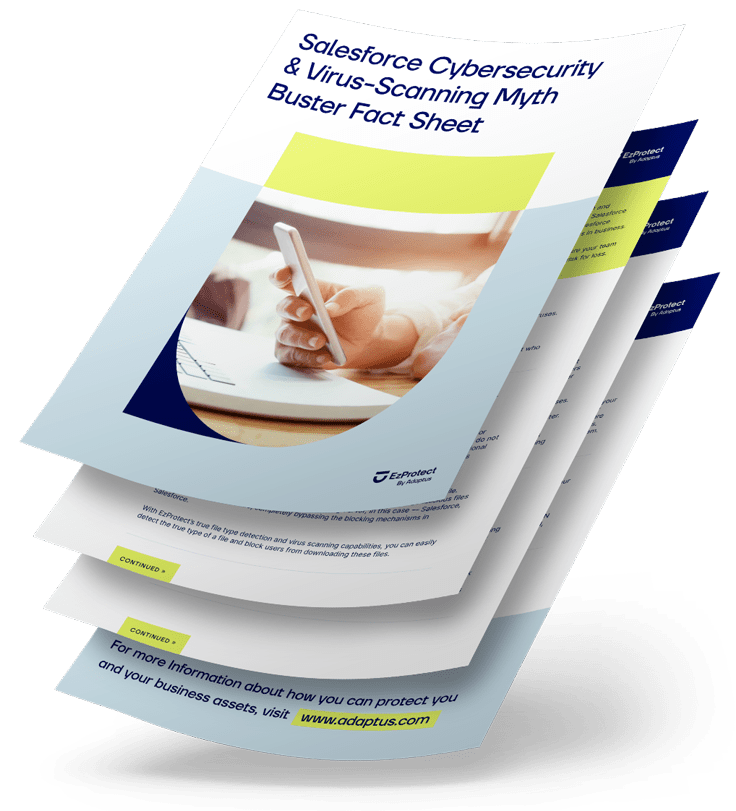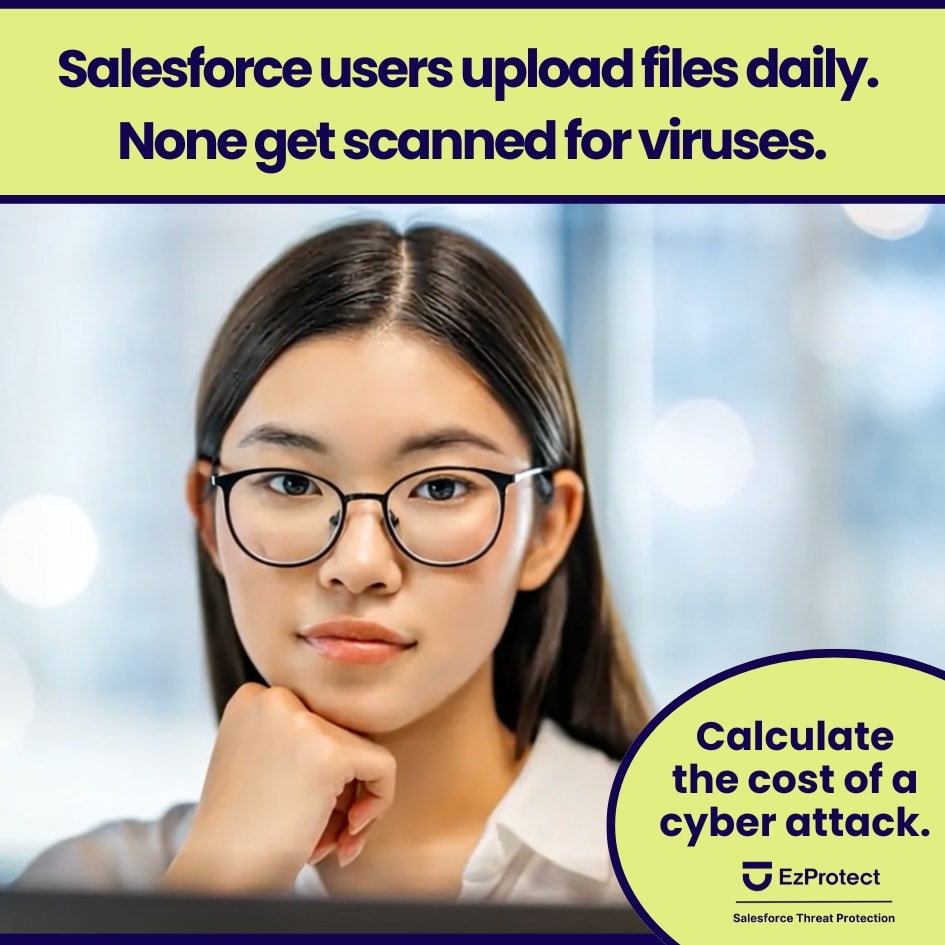Share
In today’s digital age, businesses across industries are increasingly relying on cloud-based platforms to streamline their operations. Salesforce, as a leading Customer Relationship Management (CRM) platform, has become an integral part of numerous organizations’ workflows. However, with the growing dependence on these platforms, the risk of cyberattacks and data breaches has also surged. A robust Salesforce security program is crucial to protect sensitive information and ensure the integrity of your business processes.
In this blog, we will explore how a well-structured Salesforce security program can help safeguard your data and protect you from potential hacking incidents.
Understanding the security risks
Before delving into the significance of a Salesforce security program, it is essential to grasp the potential security risks associated with using the platform. Cybercriminals may attempt to exploit vulnerabilities in your Salesforce instance, aiming to gain unauthorized access to sensitive data or disrupt your business operations.
- Unauthorized Access: Weak passwords, shared credentials, or improperly configured access controls can lead to unauthorized individuals gaining access to your Salesforce environment.
- Phishing Attacks: Employees may fall prey to phishing emails, inadvertently revealing their login credentials to malicious actors.
- Data Breaches: Inadequate data encryption, insecure APIs, or unsecured integrations can expose sensitive customer information to hackers.
- Malware and Ransomware: Infections from malware or ransomware can wreak havoc on your Salesforce instance and compromise essential data.
Why do you need a security program?
Implementing a comprehensive security program for Salesforce is not just a good practice; it’s essential in today’s digital landscape. Salesforce, like many other CRM and cloud-based platforms, stores a wealth of sensitive data, including customer information, financial records, and proprietary business data. Therefore, ensuring the security of this platform is paramount for any organization. There are several compelling reasons why someone needs a robust security program in place for Salesforce.

First and foremost, data protection is a primary concern. Salesforce houses a treasure trove of data, from customer contact details to confidential business strategies. This information is a prime target for cybercriminals who seek to exploit vulnerabilities and gain unauthorized access. A well-implemented security program helps safeguard this data by putting in place stringent access controls, encryption, and authentication mechanisms that thwart unauthorized access, data breaches, or leaks.
Furthermore, regulatory compliance is a pressing issue for many organizations. Depending on your industry and geographical location, you may be subject to various data protection regulations such as GDPR, HIPAA, CCPA, or industry-specific standards. Compliance with these regulations is not optional; it’s a legal requirement. A robust Salesforce security program ensures that your organization adheres to these regulations, reducing the risk of hefty fines, legal consequences, and reputational damage associated with non-compliance.
Preventing unauthorized access is another crucial aspect of Salesforce security. Without adequate access controls and user management, your Salesforce instance becomes vulnerable to insider threats or external attackers. Role-based access control, strong password policies, and multi-factor authentication are integral parts of a security program that thwart unauthorized users from gaining access to sensitive data.
Maintaining data integrity is equally critical. Data integrity ensures that the information stored in Salesforce is accurate, consistent, and reliable. Without proper security measures, data can be tampered with or corrupted, leading to erroneous decision-making and operational disruptions. A robust security program helps maintain data integrity by protecting against unauthorized changes and data tampering.

Business continuity is another significant consideration. Any security breach or data loss incident can disrupt your operations and lead to financial losses. A comprehensive security program includes disaster recovery and business continuity planning, minimizing downtime and ensuring your business can continue to function smoothly even in the face of security incidents.
Reputation management is closely tied to security. A security breach can severely damage your organization’s reputation and erode customer trust. In an age where data breaches frequently make headlines, customers are more concerned than ever about the security of their data. Implementing a strong Salesforce security program not only protects your data but also sends a message to customers that you take their privacy and security seriously.
Employee training is an integral part of a security program. Even the most advanced security measures can be undermined by employee negligence or lack of awareness. Security training and awareness programs educate employees about security risks, best practices, and how to recognize and report potential threats. Educated employees are less likely to engage in risky behaviours that could compromise security.
Many organizations rely on third-party integrations with Salesforce to enhance its functionality. While these integrations can be beneficial, they can also introduce security vulnerabilities. A robust security program includes a vetting process for third-party applications and integrations, ensuring that they meet security standards and do not compromise the integrity of your Salesforce environment.
Incident response is a critical component of any security program. Despite best efforts, security incidents may still occur. An incident response plan outlines procedures for detecting, containing, and mitigating the impact of security breaches, minimizing the damage, and ensuring a swift recovery.
As your organization grows, your Salesforce implementation may become more complex. A well-structured security program is scalable, adapting to the evolving security needs of your expanding user base and data ecosystem.
Regular monitoring and auditing of Salesforce activities are essential to identify security issues and ensure ongoing compliance. A robust security program includes the necessary tools and processes for continuous assessment and improvement.

Lastly, it’s important to remember that while Salesforce provides a secure platform, organizations are responsible for securing their specific implementations. Salesforce’s shared responsibility model means that organizations must take their security obligations seriously, and a well-implemented security program is the cornerstone of fulfilling that responsibility.
How a Well-architected framework helps in keeping your Salesforce protected
The Well-Architected Framework for Salesforce is designed to help organizations build secure, compliant, reliable, and scalable solutions on the Salesforce platform. It encompasses key principles and best practices to ensure that Salesforce implementations are aligned with business objectives while addressing critical aspects of security and performance.

Here’s a brief overview of how it can benefit data and organizational security:
Secure:
- Salesforce provides a range of security features and tools to protect sensitive data and prevent unauthorized access. Adhering to the Well-Architected Framework’s security principles helps organizations implement robust security controls.
- By following security best practices, such as implementing role-based access control, encryption, and authentication mechanisms, organizations can ensure that their Salesforce data remains secure.
Compliant:
- Different industries and regions have specific regulatory requirements and compliance standards. Salesforce’s Well-Architected Framework helps organizations align their Salesforce deployments with these requirements.
- This ensures that data handling and processing within Salesforce are compliant with regulations like GDPR, HIPAA, or industry-specific standards, reducing the risk of legal and financial penalties.
Reliable:
- Salesforce is a critical platform for many organizations, and downtime can have significant business impacts. The Well-Architected Framework emphasizes the importance of designing for reliability.
- Organizations can implement high availability, disaster recovery, and backup strategies to ensure their Salesforce instances remain accessible and functional even in the face of unexpected disruptions.
Having a structured security program within Salesforce is crucial for data and organizational security because:
- Data Protection: Salesforce often contains sensitive customer and business data. A well-architected and secure Salesforce environment ensures that this data is adequately protected from breaches, leaks, or data loss.
- Trust and Reputation: Security breaches can severely damage an organization’s reputation and erode customer trust. Implementing security best practices in Salesforce helps maintain customer confidence.
- Legal and Compliance Requirements: Failure to meet legal and compliance requirements can lead to lawsuits, fines, and regulatory sanctions. A structured security program ensures that Salesforce deployments adhere to these requirements.
- Business Continuity: Reliable Salesforce solutions ensure that critical business operations continue even during adverse events, minimizing disruptions and potential revenue losses.
The Well-Architected Framework for Salesforce, with its “Trusted” focus on security, compliance, and reliability, provides a structured approach to safeguarding data and organizational security. Implementing these principles is essential for organizations using Salesforce to protect their assets, reputation, and regulatory compliance.
Using the Well-Architected Framework in the real world
This is all sounds excellent in theory, but the main question is how to put it into action in real-world scenarios. Consider the Well Architected framework as a guiding resource with various best practices that can be adopted, but ultimately, it’s up to each organization to adapt and apply it to their unique business needs.
The framework extends beyond technical controls and encompasses business process controls and policies to enforce these measures. It should become an integral part of your daily operations and be integrated into your Salesforce program and release management process.
It’s important to recognize that the Well Architected framework is not a one-size-fits-all solution. Different businesses face varying levels of risk, and not all best practices and guides may be applicable. A mapping exercise is crucial before implementation, identifying the personas accessing Salesforce, their specific requirements, and the risks they pose to the organization. Both internal and external personas must be considered, including potential attackers and regular business users.
Furthermore, even though certain controls or best practices should be implemented, constraints may exist, such as budget limitations or end-user capacity. In such cases, creative solutions must be devised to address the gaps without compromising security. For instance, if multifactor authentication is challenging for certain elderly users without smartphones, alternative methods should be explored, like requesting multiple pieces of personal information only known to the users.
The key takeaway is that the framework serves as a foundation, offering recommended best practices, but organizations must think outside the box to adapt it effectively to their unique business scenarios. By doing so, they can create a tailored and robust security approach that meets their specific needs while still aligning with the principles of the Well Architected framework.
Additional best practices that can be used in Salesforce to enhance security
- Implementing a Robust Authentication Mechanism
One of the primary defenses against unauthorized access is the implementation of a robust authentication mechanism. Multi-factor authentication (MFA) is a critical component of a Salesforce security program. MFA requires users to provide additional verification beyond their passwords, such as a one-time code sent to their mobile device. This extra layer of security significantly reduces the chances of unauthorized access, even if the login credentials are compromised.

- Role-Based Access Control
A well-structured role-based access control (RBAC) system is essential for limiting user privileges within the Salesforce environment. By assigning roles and permissions based on job responsibilities, employees only gain access to the data and functionalities necessary for their specific roles. This practice minimizes the potential damage caused by insider threats and unauthorized access.
- Regular Security Assessments and Audits
Conducting regular security assessments and audits is vital for identifying vulnerabilities and weaknesses in your Salesforce implementation. Partnering with security experts or employing penetration testing can help simulate real-world cyberattacks, enabling you to proactively address potential security gaps.
- Encrypting Sensitive Data
Encrypting sensitive data at rest and in transit adds another layer of protection to your Salesforce instance. Encryption ensures that even if hackers manage to gain access to the data, it remains unreadable and unusable without the appropriate decryption keys.
- Monitoring and Alerting
Real-time monitoring and alerting mechanisms play a pivotal role in identifying suspicious activities within your Salesforce environment. Implementing security information and event management (SIEM) tools can help track user behavior, detect anomalies, and trigger alerts when potential security threats arise.
- Employee Training and Awareness
A well-informed and security-aware workforce is your first line of defense against cyber threats. Educating your employees about the importance of cybersecurity, recognizing phishing attempts, and following best practices while using Salesforce can significantly reduce the risk of successful attacks.
- Regular Updates and Patches
Salesforce regularly releases updates and patches to address security vulnerabilities and enhance the platform’s overall security. Keeping your Salesforce instance up-to-date with the latest releases is critical to mitigating potential risks associated with known vulnerabilities.
- Secure Integrations
Integrating Salesforce with other applications is common in many organizations, but it can also introduce security risks if not handled properly. Verify that all integrations are securely configured and regularly reviewed for any potential security issues.
- Disaster Recovery and Business Continuity
In the unfortunate event of a successful cyberattack, having a robust disaster recovery and business continuity plan can help minimize downtime and data loss. Regularly backing up your Salesforce data and conducting recovery drills ensures you can quickly restore operations in case of a breach.
Conclusion
Protecting your business and customers from cyber threats is of utmost importance in today’s digital landscape. A comprehensive Salesforce security program is not an option but a necessity to safeguard your data, reputation, and overall business operations. By implementing measures like multi-factor authentication, role-based access controls, regular security assessments, and employee training, you can significantly reduce the risk of getting hacked and bolster your organization’s cybersecurity posture on the Salesforce platform. Stay vigilant, be proactive, and prioritize security to keep your data and business safe from potential cyberattacks.
Discover how we’re building a robust Salesforce Security Framework, rooted in the Salesforce Well-Architected model. Our framework offers organizations clear, step-by-step guidance on architecting secure Salesforce solutions. By prioritizing security, compliance, and reliability, we help protect your data and reputation. Elevate your Salesforce implementation to the next level of trust and performance.

Want to learn more? Book a free Salesforce Security Assessment to find out if you are at risk today!
Share
Did you love this blog and wish there could be more?
It is our goal to keep you informed about everything you need to know about Salesforce security to keep your Salesforce data and company safe and secure by providing you with the highest quality of original content.
If this sounds good to you, then sign-up below to be one of the first to know when the next super awesome Salesforce security blog has been released.


